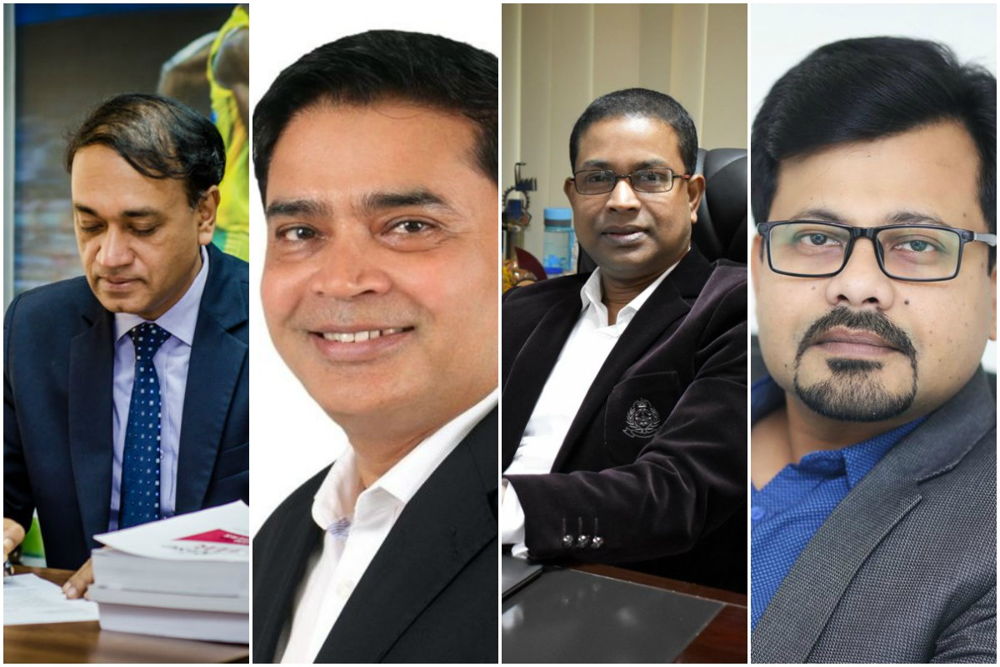
Building a fulfilling career is not a destination rather a journey. You do it daily, says G M Kamrul Hassan of IGLOO. He further points out “career is a journey and you have to put your 100% every day. What you did yesterday seldom matters today. Your performance today is what matters. First thing is, start afresh every day. Apply yourself daily.”
Today, we live in a different world. Walls and boundaries are crumbling. The internet has effectively made the geographic boundary irrelevant. This means the nature of both our opportunities and competition is global and we have to prepare ourselves for it.
On the other hand, our jobs are becoming increasingly complex. In the past, job roles were specific and defined. Today, our job roles are at best ambiguous and we get to figure it out daily and find ways to navigate this ambiguity and win.
At the same time, technology is taking over our lives and it is changing almost every industry in a very fundamental way. This means you have to be, regardless of your field of work, tech-savvy not only to thrive but also to survive.
In a world where machines start to take over our mundane repetitive jobs, the humane skills become the only means to indispensability and we have to learn to solve problems that machines can’t solve, skills that robots or AI-enabled machines can’t do, skills such as creativity, critical thinking, problem-solving and so forth.
Along with these challenges, competition in the job market continues to grow. Today, having a business or engineering degree is no more enough. Modern workplaces require you to have cognitive flexibility, an entrepreneurial mindset, and the ability to think critically and come up with unconventional ideas to solve complex problems. We need a complete reorientation of our attitude and develop qualities like resilience, growth mindset, etc.
“We do not challenge students enough at any education level to enable them to make good use of their pliable potentials. As a result, they become cognitively inflexible”, says Rizwana Akhter, a senior development professional, and career counselor. People with a high level of creativity, problem-solving, and cognitive flexibility, social and emotional intelligence will rule the future workplaces.
We are gradually but surely entering a different world. It has already been dubbed as the fourth industrial revolution and the challenges are going to be enormous in the coming days.
In this fascinating story, brought to you by Bdjobs Training, we bring you insights from a host of business leaders in Bangladesh working in diverse fields on a wide range of topics including the most sought-after skills in the market, critical skills one needs to develop to thrive in the future workplaces, why attitude is more important than skills, the importance of developing a lifelong learning habit and why with a high level of creativity, problem-solving, and cognitive flexibility, social and emotional intelligence will rule the future workplace.
[su_divider top="no" divider_color="#adacab" link_color="#edde29" size="1"][/su_divider]
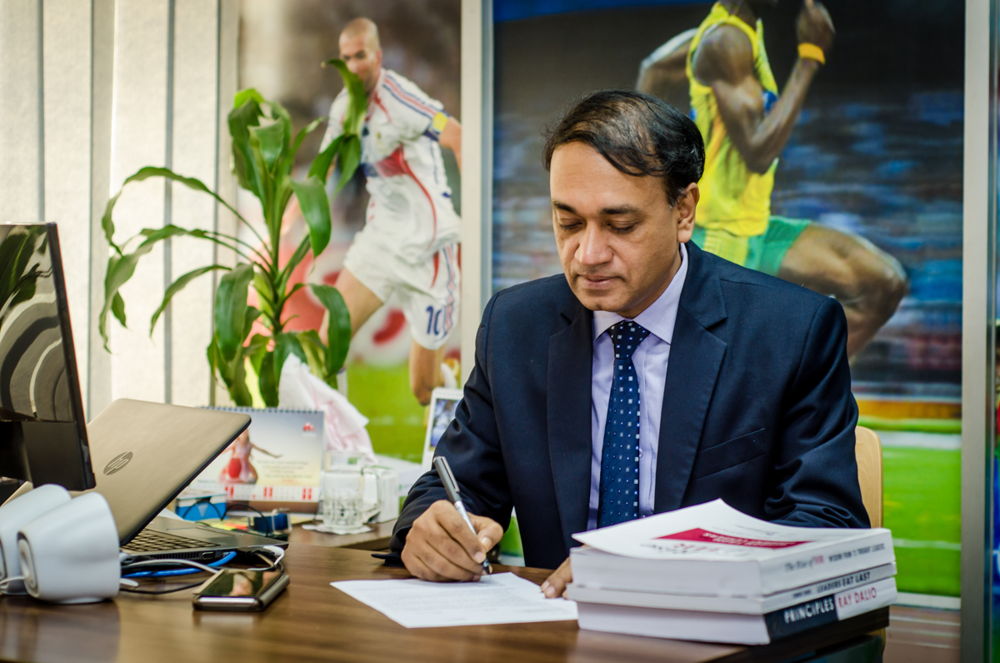
Md. Moinul Islam is the Director, HR at ACI, one of the largest and most important conglomerates in the country. Mr. Islam was born and bred in Chittagong. Growing up, he was greatly influenced by his Grandfather, who was a teacher by profession, and his father, who was a teacher by heart. Philosophical discussion around life and life’s meaning was a commonplace thing. In University, he studied Pharmacy, then most in-demand major at Dhaka University, but his natural inclination was more towards teaching and helping people to train and grow which eventually led him to build a career in HR. Since he joined ACI, he has been on the go, experimenting with new ideas to improve productivity to identifying better ways to help people find fulfillment at work and creating an environment of continuous learning and growth.
In an interview with Future Startup, he offered the following tips for building a fulfilling career and thriving in the changing world of work.
1) Be tech-savvy: With the advancement of the technological revolution, the future will be lead by tech-savvy people.
2) Be flexible: Innovation, idea, and adaptabilities to change will be the key to success.
A new set of competencies: A new set of competencies will rule this digital age like big data, analytics, AI, Cloud computing, BI, Robotics augmented and virtual reality related expertise will play a dominant role.
3) Take ownership of your work: You have to take ownership of your work and definitely, you need to go the extra mile. And you have to do it consistently for a long time, only then it will yield a result. Sporadic hard work does not produce any good.
4) Love your work and it is "Work + Life", not Work vs Life: Young people these days have the idea of work-life balance. I don’t believe in such a balance. Instead of separating work, we should be making it an integral part of our life. I feel as much homely in this office as I do in my actual home. Honestly speaking, there’ve been many holidays in the last several years which I passed in the quietness of this very room.
I think the idea itself that our life has to be enjoyed separately from our work is a quite premature idea. We spend a significant portion of our day at work. By calling it to work and not life, are we trying to prove that work is not that important part of life? I think the idea should be to find a way to integrate our life and work in a way that is coherent and meaningful.
[su_divider top="no" divider_color="#adacab" link_color="#edde29" size="1"][/su_divider]
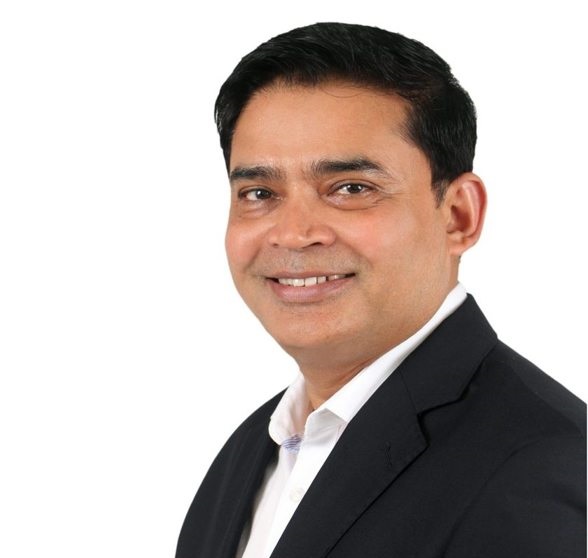
Akhteruddin Mahmood is the Group Head of HR at IDLC Finance Limited – one of the finest financial organizations in the country. Mr. Mahmood has over 29 years of experience working in diverse sectors spanning multiple geographies. Before joining IDLC, he worked at some of the leading multinationals including BATB, Nestlé in various local and regional roles.
In an interview with Future Startup, he offered the following tips for building a fulfilling career and thriving in the changing world of work.
1) Attitude is the most important thing: we primarily look for three things in people: knowledge, skill, and attitude. And we look at each of these things very differently.
Knowledge is open now. Anyone with willingness, dedication, and passion for learning, can learn almost anything.
Skills are the things that you are good at. That too can be taught and learned. If you are not good at something, through hard work and deliberate practice, over time you can acquire almost any skill. Be it computer literacy or sales or any other skill for that matter.
The most important thing, however, for us is the attitude and cultural fit. We try to find people who have the right attitude.
2) Developing skills is easy if you have the right attitude: we have found that when it is easy to train a person to develop a particular skill, it is very difficult to change a person who does not have the right attitude and mindset. That’s why when we recruit people, we emphasize more on the attitude and cultural fit part than the knowledge and skill. We believe that with the right attitude, people can move mountains and achieve new heights.
3) A can-do mentality and willingness to take initiative are critical: we check whether a person has got the can-do attitude or not, whether he has the appetite to take initiatives as opposed to maintaining the status quo, whether he is a team player and can deliver on his promise.
We are looking for people with the ability to take initiatives. We need people who can do things, can make things happen, and drive change. We seek proactive people rather than people who wait for the orders and instructions all the time. The days of map-followers are over.
4) Good grades and basic life skills both are critical: we come across a lot of young people with excellent academic results who lack basic professional and life skills. It seems to me that while many young people invest a lot of time and effort in achieving good grades, they don’t give much effort to developing life skills that are imperative to professional success.
I’m not suggesting that grades are not important, rather along with good grades, you should also pay attention to building some applied skills. There is a balance in everything. It is important to have good grades, it is also equally critical to develop basic life skills.
5) Attend extracurricular opportunities while at university: University life offers ample opportunities for attending extracurricular activities that can help students to develop leadership, management, and people skills. I think it is wise to take advantage of some of these opportunities that facilitate the development of street smartness.
Sometimes, we really feel frustrated to see very good students with great academic scores lack people skills, basic communication skills, and the likes.
As a nation, I think it is time for us to look at the education of our young generation from a holistic point of view focusing on technical skills, knowledge, and attitude, and life skills in making them a complete individual. We should find ways to instill the right attitude in our young people as well as help them develop leadership skills.
6) Communication skill: Communication skill remains an indispensable one. And frankly, we are relatively weak at it. I am not referring to the language skill or dialect; it is about getting your message across. Your ability to understand what the other person is saying and at the same time, being understood, being able to tell what you want to tell.
If you look at other developed countries or our neighboring country India, you will see that they are very good at communication which has helped them to move forward in many areas. Your ability to articulate, share, and communicate your idea is an incredibly important quality.
7) Social skill: Managing and navigating relationships is another key skill that you need to thrive in modern workplaces. Although we think that it is simple and everyone knows it, it is not true. Most people struggle with dealing with complex relationships in the workplace. It is only wise to invest in developing these skills early on.
[su_divider top="no" divider_color="#adacab" link_color="#edde29" size="1"][/su_divider]
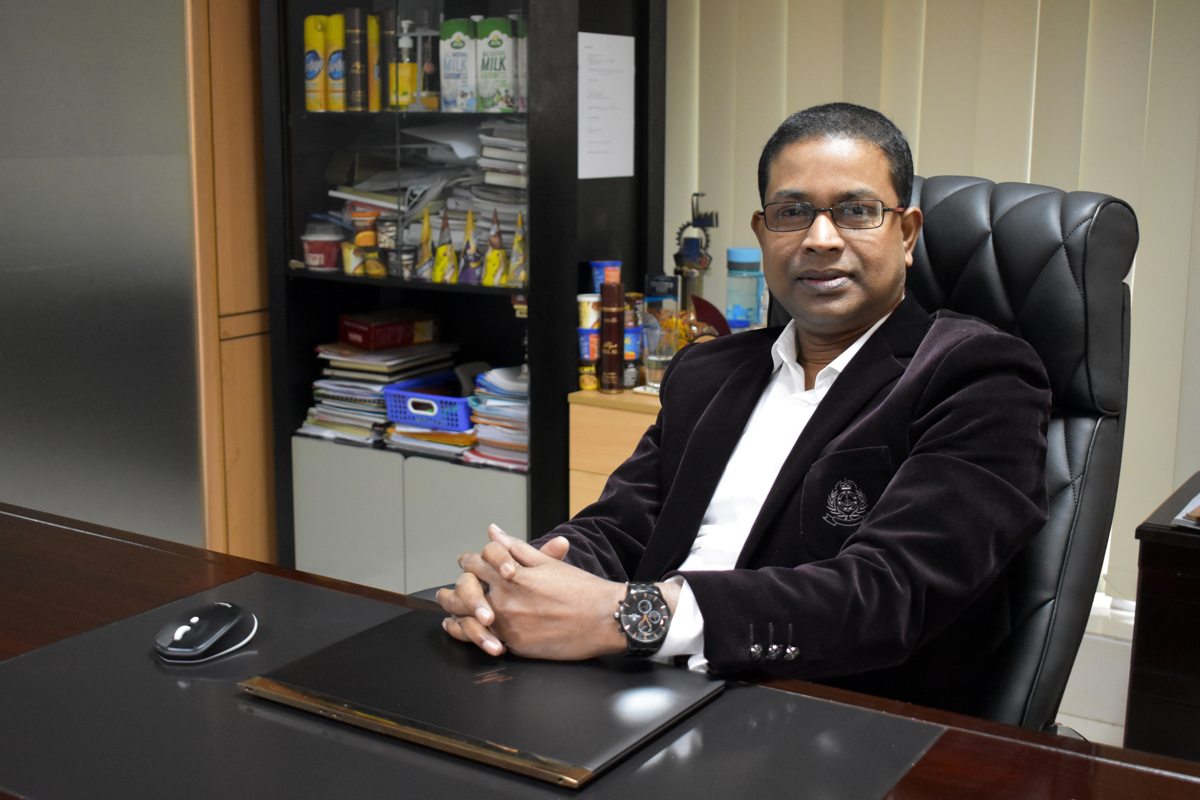
G M Kamrul Hassan is the Chief Executive Officer at IGLOO, the leading ice cream brand in the country. Mr. Hassan has a diverse career spanning multiple industries. Before joining IGLOO, he worked at some of the leading multinationals and local conglomerates including Nestlé, New Zealand Dairy, Rahimafrooz, and PRAN-RFL in various important roles.
Mr. Hassan has been awarded the South Asian Business Excellence Award 2017 as the Best CEO in FMCG (Food and Beverage category) hosted by the World HRD Congress and endorsed by the Asian Confederation of Businesses in October 2017.
In an interview with Future Startup, he offered the following tips for building a fulfilling career and thriving in the changing world of work.
1) Maintain a growth mindset: Having a growth mindset is critical in today’s workplaces. A growth mindset means you consider yourself as a product in progress instead of something fixed with almost no opportunity to grow. Rather you believe you can change your life by working hard and investing in yourself.
This is important because when you have a growth mindset you will push yourself no matter what is the outcome. You will fail, you will break and the next day you will stand up again and run. This is an ability needed most in today’s workplace than anytime before.
2) Think long-term: There is no shortcut to success. You have to endure difficulties and take challenges for a long time to move forward. You can change your pace or route but your goal should not change in the face of a challenge or a sudden opportunity. Often anything worthwhile takes a long time to achieve.
3) Career is a journey: Career is a journey and you have put your 100% every day. What you did yesterday is seldom matter. Your performance today is what matters. First thing is, start afresh every day. Apply yourself daily.
4) Pursue depth: Many young people I come across these days are not interested in depth. They are superficial and try to resist challenges and difficulties. They do not want to attend to the details. They seem to be impatient and always into many things at once.
A growing number of people seek a shortcut to things. This is a recipe for suicide. First of all, you have to explore things in-depth so that you develop a better understanding of things. Then you should be patient because things take a long time to happen.
5) Learn every day: Develop a relentless learning attitude. Be sincere and passionate about your work.
6) Be humble. We are mere humans and we will not be here for long. Moreover, many of the things that we feel proud of in life does not last long. Sometimes we get lucky and win. There is no harm in being humble.
7) Be confident. But don’t be overconfident. No matter how better you understand things, it is better not undermining your superior. People are driven by many things and it may come back to you differently. Sometimes, playing small does more good than harm.
[su_divider top="no" divider_color="#adacab" link_color="#edde29" size="1"][/su_divider]
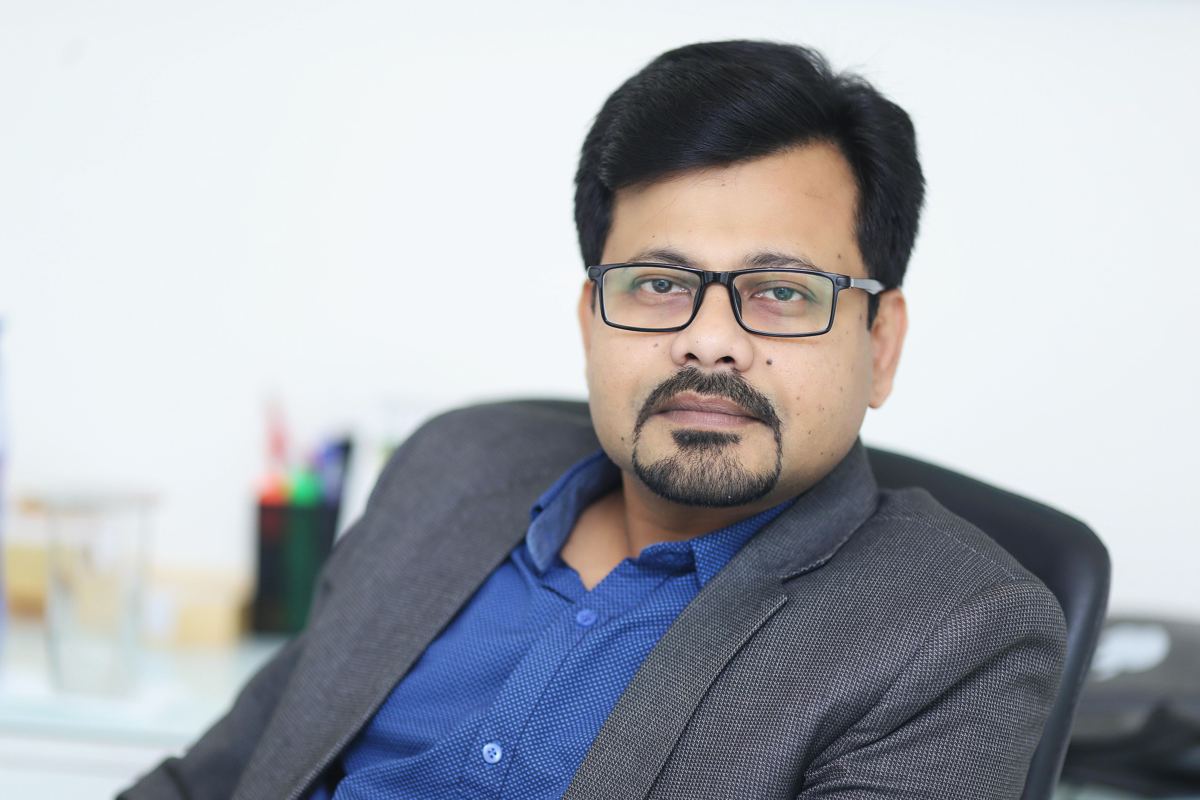
Mohammed Ferdous Yusuf is the Chief Of Human Resources Officer at bKash, one of the most important fin-tech companies in the country. Mr. Ferdous has a fascinating story. He was born and brought up in Chittagong.
An only child of his parents, he had a rather comfortable life growing up in the hilly city which he dubbed “I had a rather easy and to some extent, you may call, a hedonistic life” but you know, very few things in life last long enough. After his HSC, he moved to India for higher studies where he finally came to know and understand the realities of life. He says, struggles and difficulties he had to endure during his time in India have prepared him for the challenges of his later life and have greatly contributed to who he is today.
1) Skill is the result of having the right attitude: I have a different opinion on this. I don’t consider the skill to be as important as we try to portray it is, of course, I have my explanation for that. For example, swimming is a skill and if you don’t know it and if you are willing to learn and are given the opportunity, you can learn it. No big deal. That is true for almost all the skills, be it soft skills or otherwise.
If I ask you to climb Mt. Everest, you would certainly say no. Then again, people are climbing Everest with practices. The challenge is not skill, it is the mindset. I think we are worrying about the symptoms instead of the cause. If you think that you will never be able to climb mountains, that’s the problem. Not otherwise.
2) Be patient: So to me, the challenge is the mindset and attitude and there are a few problems around these. Again this is my personal observation, I think our young people are impatient. They tend to try many things at once.
This impatience nature takes over many other parts of their lives. They tend to pursue a lot of things and want to achieve significant success overnight. When they are studying a subject, they don’t give enough time that is required to understand a particular subject. As a result, the depth of their understanding of a subject is superficial.
3) Think long-term: A good career is built over a long time. That is true for almost everything in life, be it a job, building a company, or mastering a subject.
I would suggest that it is better to find what you want to do in your career and stay put with that line of work for at least 4 to 5 years. Do not ever think about promotion in those years rather your focus should be only on the learnings, developments, and experience. After 5 years, you go to wherever you want to, and whatever position you want to hold.
4) Be flexible: Agile and adaptable people would rule the workplace of the future. Our work is becoming increasingly complex and ambiguous, to succeed you have to be a relentless learner and open to changes and new things.
5) Understand the impact of technology on your domain: The reality that technology is taking over our lives and that it is changing almost every industry in a very fundamental way. This means you have to be, regardless of your field of work, tech-savvy not only to thrive but also to survive.
6) Global mindset: I would like to say that people with global standard acumen will do much better in the coming years. Do not think about Bangladesh alone, it is and will always be important to understand the local context but at the same time, I think talents will have to compete on a global stage.
[su_divider top="no" divider_color="#adacab" link_color="#edde29" size="1"][/su_divider]
As we already discussed, the future of work is different. It not only getting complex, it is increasingly becoming global and competitive.
Bdjobs Training has a host of training programs that can help you to take your career to the next stage. If you are looking for an opportunity to develop and improve your skills and learn about the future of work and how you can prepare yourself for that future, you may consider taking a career development-related course at Bdjobs Training.
-
Notes:
1. Part of the introduction is reproduced from this story.
2. Further reading: Read our interview series on the future of work in Bangladesh here.
3. Read our story series with Bdjobs Training on the Future of work in Bangladesh here.
(This is an editorially independent branded content prepared by Storylab, Future Startup’s in-house branded content studio, in collaboration with Bdjobs Training.)
